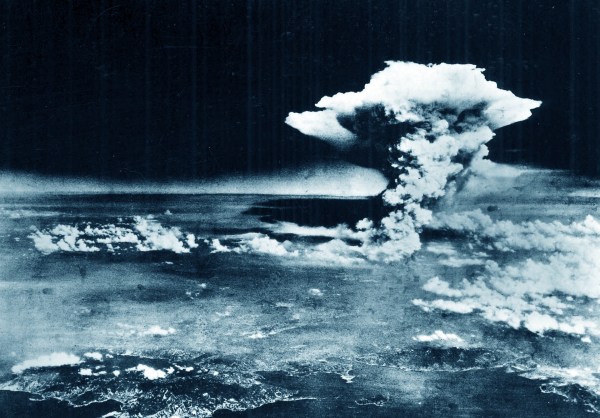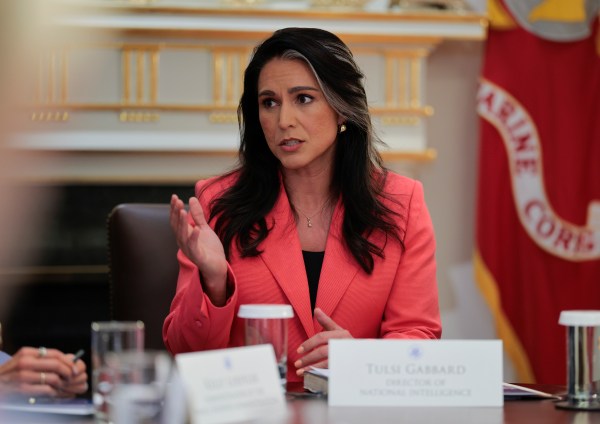Last Thursday was Holocaust Remembrance Day. Pegged to the liberation of Auschwitz on January 27, 1945, the anniversary was duly commemorated around the world (with some predictable exceptions). In truth, however, it was a little odd—all those pious self-congratulatory vows of “never again” coming within days of the opening ceremony of the Beijing Olympics. It’s been 86 years since the Olympics were exploited by a genocidal tyrant bent on delivering greater glory to his own government. But at least at that moment Hitler was only planning the Final Solution to exterminate the Jews; he didn’t have active concentration camps as the Communist Party of China does in Xinjiang, bent on the extermination of its Muslim Uyghur population.
It's cathartic to decry the hypocrisy of self-professed lovers of human rights in the face of actual genocide. But the reality is that those who applaud the physical feats with one thumb up and denounce the genocide with the other thumb down are in good company: Indifference and inaction are the norms in the face of terrible crimes against humanity. Of course, there have always been good people who do their utmost to stand up, to use the powers of their government, or their organization, or their community to call attention to the nightmares afoot. But there has been a surprising consistency in the willingness of governments to look aside, to create meaningless bureaucracies like the United States’ “Atrocities Prevention Board,” or worse yet, to acknowledge the horrors with a shrug.
The first stories about Germany’s purification of the race actually related to the handicapped—mental and physical—and not Jews. In 1933, Hitler’s Germany introduced the “Law for the Prevention of Progeny with Hereditary Diseases,” which was much as it sounded. In 1939, the Nazis introduced the T4 program that began mass killing—eventually with poison gas—of Germans and Austrians with handicaps. The program served as an early model for the Final Solution, and by the end of the war, 275,000 of those deemed “unworthy of life”—which included the terminally ill, the elderly, and the disabled—were murdered.
Aside from pleas and arguments from the family members who realized their “lesser” brethren were being exterminated by the state, the most notable fact was how few protests there were. Several Lutheran and Catholic bishops stood tall, most prominently the bishop of Münster, Clemens August Graf von Galen, whose denunciations were dropped in leaflets across Germany by the British. But even the Vatican was, for the most part, remarkably silent despite documented awareness of the murders.
Regarding the Jews, it’s not as if the racial laws promulgated first in Hitler’s Germany and Austria, and then in Mussolini’s Italy, were secret. The stories made the New York Times—though rarely the front page. Even the next step—taking those undesirables and shipping them off to extermination camps, was well-known to the U.S. government by 1942, though the information was suppressed, and once verified, ignored. Indeed, the Roosevelt administration made an affirmation decision not to do something about Hitler’s camps. Perhaps it was a wise strategic decision, perhaps not. But certainly, there is no doubt it was made, and it was one of a legion of decisions to neither act on behalf of Europe’s Jews nor to provide haven for those who did manage to escape.
Think the story of the Jews is a complex one? How about Pol Pot and the Khmer Rouge’s murder of up to 2 million Cambodians? The U.S. stood by, averse to more entanglements in Vietnam. The systematic murder of the Rohingya Muslims in Burma? The U.S. deplored the “ethnic cleansing” and slapped on some sanctions. What about the murder of more than 500,000 Syrians by the Assad regime with Iranian and Russian support? Yeah, the Biden administration is now in the process of rehabilitating Assad.
There is no shortage of stories of persecution, daily repudiations of the “never again” mantra. Tibetan Buddhists in China; the Bahai in Iran; Tigrayans in Ethiopia; and many, many more. But the challenge is not to create a list, or even to shame the hypocrites who trumpet their human rights virtue. The question, as it always has been, is what to do, understanding that the United States cannot do everything, cannot solve every problem. And so, we return to the concentration camps in Xinjiang.
The first step is exposure. Many organizations deserve praise for drawing back the curtain on Uyghur camps and slave labor, few more than the Australian Strategic Policy Institute. The second is unrelenting pressure, and for that we can be thankful to reporters like Josh Rogin at the Washington Post. The third is Congress: The Biden White House has been without shame in ignoring the plight of the Uyghurs—labeling Beijing’s campaign a “genocide” but then refusing to act to try to stop or punish it, even with sanctions. Indeed, the White House had to be forced into action against Chinese officials and companies that exploit slave labor in Xinjiang. Had members of Congress been as supine as the Biden administration, there would likely be senior Biden administration officials at the Beijing Olympics. Instead, the president was forced to sign Sens. Marco Rubio and Jeff Merkley’s Uyghur Forced Labor Prevention Act (UFLPA).
Was the right answer to boycott the Olympics? The debate is lively and should not be dismissed, but we should not deceive ourselves into thinking that even a boycott would deter the wholesale elimination of a people. Embarrassing to Xi Jinping? You bet; but the cost is not so high it would cause him to rethink his campaign. Rather, it is the concept behind the UFLPA that has the best prospects for some success.
Companies that use forced labor must be isolated and tossed from markets. Goods that are procured from Xinjiang must be bought elsewhere. Officials complicit in the decisions must lose their ability to move around the world, their accounts frozen, their associates sanctioned.
Decisionmakers in Beijing must be in the crosshairs, and all those Chinese companies complicit in Xi’s murderous campaign removed from global exchanges, their officials denied visas, their offices overseas closed. This cannot be done piecemeal, as the Biden administration crawls toward a patchwork of punishments for the facilitators of the Uyghur genocide. It must be coordinated with partners; it must be global.
There are some who will say that even the starkest sanctions will not deter Xi from his mission, and they may well be right. But morality dictates that the world must at least try, must at least raise these horrors at every meeting, must keep the story on the front page as much as possible. That is, unless “never again” is to have a corollary: Only sometimes.






Please note that we at The Dispatch hold ourselves, our work, and our commenters to a higher standard than other places on the internet. We welcome comments that foster genuine debate or discussion—including comments critical of us or our work—but responses that include ad hominem attacks on fellow Dispatch members or are intended to stoke fear and anger may be moderated.
With your membership, you only have the ability to comment on The Morning Dispatch articles. Consider upgrading to join the conversation everywhere.